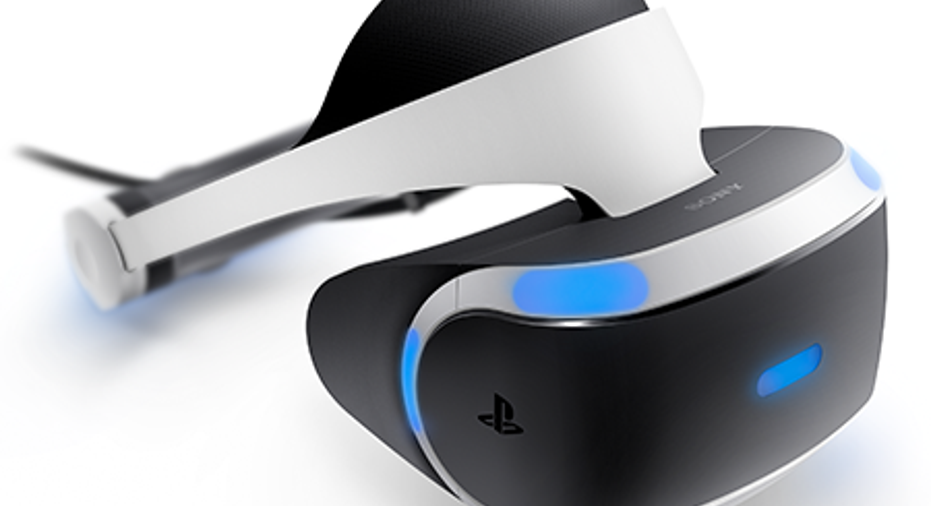Forget Facebook: Here's a Better Virtual Reality Play

Image source: Sony.
The virtual reality (VR) market is fighting an uphill battle. As of right now there are just 8 million PCs that can handle true virtual reality graphics processing. The tech is so detailed and immersive that 99% of computers on the market this year won't be able to handle true virtual reality.
And that's bad new for Facebook's Oculus. The company unveiled its $599 Rift headset recently, and it's probably one of the best on the market right now, but it needs a powerful PC to run on.
But that doesn't mean that all companies will have to wait for PCs to catch up. Sony Electronics' PlayStation 4 console is already selling like gangbusters (over 36 million so far, compared to Xbox One's 20 million), and the company is on the brink of selling its recently debuted PlayStation VR headset.
Sony's VR advantage is pretty significant: tens of millions of its consoles are already capable of handling its virtual reality headset, it's cheaper than the Oculus Rift, and there's a long line of developers and game makers already producing content for it.
Virtually unstoppableThink about this for a moment: If you wanted to sell a device that allows people to play their video games in new and exciting ways, who would you sell that device to? You wouldn't go to people who only play games occasionally. You'd target gamers, of course.
And that's the beauty of Sony's PlayStation VR. The hardware is targeting the exact people who already want to play games, and it works with the equipment (the PlayStation 4) they already have.
But even among PC-owners who have VR-capable machines, most would prefer a Sony virtual reality headset over a PC virtual reality headset.
If you don't believe me, check out what the Gamer Network found when it polled a largely PC-gaming population about whether they'd be more willing to buy a headset for their computer or a PlayStation VR headset. The survey found that while 75% of the gamers owned a PC that was VR-ready, only 15% of them wanted a VR headset for their computer. But among the same group, nearly 20% said they wanted a PlayStation VR -- and only 35% had a PlayStation 4 right now.
So even among people who have PCs that are ready for VR, it appears that Sony's VR headset is still in higher demand, according to Gamer Network.
And then there's the price. The PlayStation VR will sell for just $399, a full $200 cheaper than the Rift. And users can pre-order a PlayStation VR launch bundle right now that includes motion-sensing controls, cameras, and the headset for $499, which is still $100 cheaper then the Rift's headset-only price.
And the final key advantage for Sony is content. The Oculus will have to convince developers that it's worth all the time and effort to invest in creating content for a device with a high price tag and limited appeal. Sure, Oculus has its own content creation studio, but that can only take it so far.
Meanwhile, Sony says it already has 230 developers and publishers making content for its PlayStation VR.
How this helps Sony's businessSony's in the midst of refocusing its attention on its businesses that are actually growing. That means you'll see the company pouring more time and resources into its gaming business. The PlayStation VR could be the first evidence of this, and it's likely a very good thing.
Sony's fiscal third quarter 2015 gaming revenue increased by more than 10% year-over-year to $4.89 billion. That means the Sony's gaming division brought in roughly 23% of the company's total revenue for the quarter.
The company is focusing its attention on gaming just as virtual reality costs and technology are becoming mainstream for gaming consoles. And with VR expected to grow into a $70 billion market by 2020, Sony is poised to reap the benefits of this gaming evolution.
The article Forget Facebook: Here's a Better Virtual Reality Play originally appeared on Fool.com.
Chris Neiger has no position in any stocks mentioned. The Motley Fool owns shares of and recommends Facebook. Try any of our Foolish newsletter services free for 30 days. We Fools may not all hold the same opinions, but we all believe that considering a diverse range of insights makes us better investors. The Motley Fool has a disclosure policy.
Copyright 1995 - 2016 The Motley Fool, LLC. All rights reserved. The Motley Fool has a disclosure policy.



















